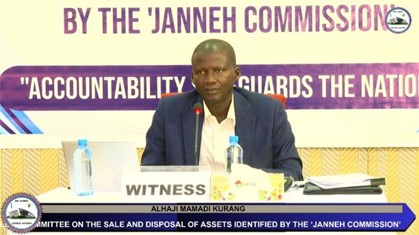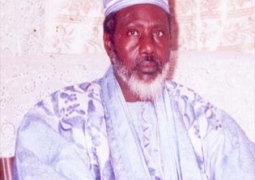
Appearing before the National Assembly’s Special Select Committee, Kurang painted a picture of poor coordination between state institutions and last-minute decisions that risked undermining the Commission’s credibility.
At the heart of the matter were three key types of assets: properties, livestock, and wildlife – all of which had been seized by a court order in 2017 pending the work of the Janneh Commission.
According to Kurang, Paragraph 2 of the ruling handed over movable and immovable assets to the Registrar General, while Paragraph 4 gave livestock custody to the Gambia Livestock Marketing Agency (GLMA). Wildlife assets, including hyenas, were also placed under government protection.
But the implementation, he said, fell apart quickly.
“We were directed to let GLMA assist with tagging and valuation,” Kurang said. “But in reality, they weren’t in control. The hyenas were starving in Kanilai. We had to call an NGO called the Horse and Donkey Trust to feed them. That’s how serious it got.”
He said the Commission, sensing the urgency, moved quickly to tag, value, and prepare the cattle for sale. “But before sales could start, legal advisers put everything on hold insisting that High Court approval was needed.”
He underscored that this delay came after the tagging and valuation had already been completed, raising questions from counsel about why the Sheriff’s Office legally mandated to oversee the sale wasn’t present at all.
Kurang admitted: “Yes, the Sheriff was supposed to conduct the sale, but that order came after we had done the tagging and valuation. The lawyers decided we had to pause and go back to court.”
He disclosed that amid all of this, the Committee was shocked to learn of a report alleging that 400 cattle had been slaughtered by a military officer, Major Jibril Jammeh, before the Commission could secure them.
“That came from a Registrar General report addressed to the Chief of Defence Staff,” Kurang confirmed. “The cattle were reportedly slaughtered for unknown reasons.”
Faced with a potential loss of valuable assets, Kurang said the Commission felt compelled to act fast even if it meant improvising. The chaotic situation included calling local villagers and cattle handlers to chase and tag unrestrained cows in Kanilai.
“We needed real people who knew how to handle cattle. My team I call them the gynecologists were holding tails, chasing bulls. It wasn’t something a city lawyer could manage,” he said.
Kurang outlined that while the intentions of the Janneh Commission were serious, the handling of assets particularly livestock was messy, rushed, and often uncoordinated.
“Key institutions like the Sheriff’s Office were sidelined, court orders overlapped, and hundreds of animals may have vanished without proper accountability.”





